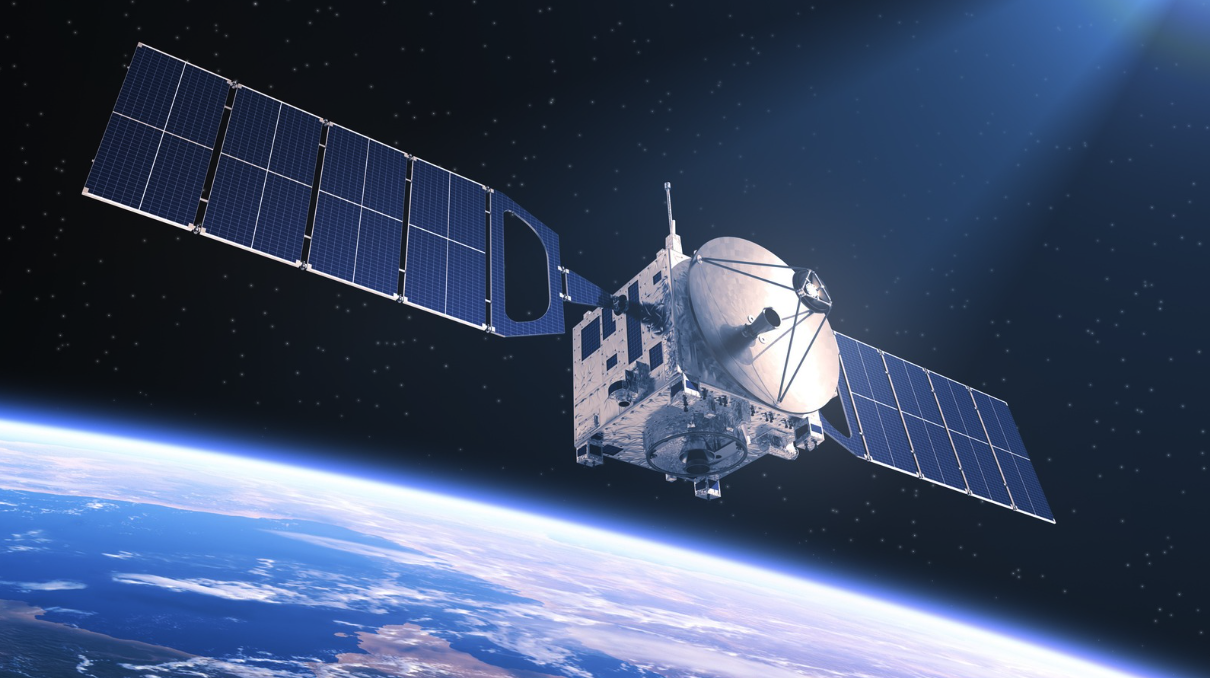Navigating the New Frontier: Modernising Low Earth Orbit Spectrum Policy for Global Capability
Modernising outdated GEO-era spectrum rules is essential to unlock the full potential of low Earth orbit satellites, maintain U.S. space leadership, and counter rising global competition.

Outdated GEO-era spectrum rules are limiting the performance and competitiveness of modern low Earth orbit (LEO) satellite constellations.
Technological advances now allow LEO and GEO systems to coexist without harmful interference, making regulatory updates both possible and urgent.
Modernising spectrum policy is a strategic necessity for maintaining U.S. leadership in space, countering competition from the PRC, and shaping global standards.
Space has emerged as a critical battleground in the ongoing geopolitical competition between leading global powers, including the United States, the People's Republic of China (PRC), and Russia. This domain is not merely a distant frontier; it is both literally and figuratively the high ground, offering strategic advantages in communications, surveillance, navigation, and power projection. Space has become essential to both economic prosperity and national security. Yet one issue, often overlooked but increasingly urgent, is the need to modernise spectrum policy. Current spectrum sharing rules, designed decades ago for geostationary (GEO) satellites, now constrain innovation and limit the potential of rapidly expanding low Earth orbit (LEO) satellite constellations.
LEO in Action: Lessons from Ukraine
The stakes are evident in the example of Ukraine. In August 2022, during an intense phase of the conflict, Ukrainian civil society crowdfunded the acquisition of a LEO satellite. This “people’s satellite” allowed the military to receive imagery under any weather conditions, detecting adversarial units even when camouflaged in foliage. Such intelligence was used to direct strikes against enemy positions. Ukrainian commanders have stated that without these satellite assets, the war could have taken a far worse turn. This case illustrates how commercial LEO satellites are reshaping geopolitical realities, reinforcing the need for US policy—and by extension, global policy frameworks—to adapt rapidly (CSIS).
Understanding Low Earth Orbit Satellite Constellations
LEO constellations are networks of satellites typically operating within 2,000 kilometres of Earth. Unlike GEO satellites, which remain fixed relative to a point on the surface, LEO satellites orbit continuously, enabling low-latency communications. This capability is vital for connecting rural and remote communities and for providing resilient communication in conflict zones. While the United States currently leads in this field, competition is intensifying. The PRC is preparing to launch large-scale constellations, supported by significant state investment, signalling that the LEO domain will become far more competitive in the coming years.
The Challenge of Outdated Rules
Spectrum sharing rules between LEO and GEO constellations were established about 25 years ago, when GEO satellites dominated the market. These regulations aimed to prevent LEO satellites from interfering with GEO operations. Today, advances in technology have outpaced these rules. Under the current framework, some LEO satellites are restricted from providing service to avoid interference, creating inefficiencies and undermining the advantages of LEO technology. Innovations such as beamforming and adaptive coding and modulation now make it possible for LEO and GEO systems to operate simultaneously without degradation of service (FCC).
Benefits of Policy Modernisation
Revising outdated spectrum sharing rules would bring multiple benefits. Greater operational flexibility would allow more satellites in a constellation to provide service at once, improving coverage and efficiency. Expanded capacity would strengthen the ability to deliver communications to underserved rural areas and to support operations in conflict zones. Efficient use of existing satellites would lower operational costs by reducing the need for frequent launches, even as launch prices continue to decline. Improved efficiency and service reach would expand broadband access globally, benefiting consumers and bolstering the international competitiveness of US space companies. Updating these rules would help ensure that US LEO systems remain competitive despite growing foreign investment and technological advancement abroad.
Policy Imperatives and Global Competition
In the United States, the Federal Communications Commission (FCC) is central to the policy debate. Decisions taken by the FCC could enhance the performance of LEO constellations domestically, paving the way for the US to push for similar changes at the World Radiocommunication Conference (WRC), where international space rules are set. The geopolitical implications are significant. The PRC is investing heavily in LEO capabilities and closing the gap with the US. Leadership in space requires not just launching more satellites, but ensuring they can operate at peak capacity. Regulatory leadership will also shape global norms, as demonstrated by the European Union’s recent EU Space Act, which establishes its own governance framework.
Why Leadership Matters
When the US updates its regulations, it effectively sets the operational standards for other nations, due to the scale and influence of its space industry. If it fails to act, other countries may set rules that disadvantage US interests. This is not solely a US issue; in a connected space economy, coordinated regulation is critical to ensuring interoperability, avoiding disputes, and maximising the benefits of orbital infrastructure.
Outlook
Spectrum policy for LEO satellites will be a decisive factor in the balance of power in space over the next decade. Acting now to modernise outdated GEO-era rules would reinforce US leadership in space technology and policy, ensure optimal use of LEO constellations, and give the US a strong voice in shaping global standards. It would also help counter growing competition from the PRC and other emerging space powers. Failure to modernise risks ceding both technological and regulatory leadership, with direct consequences for national security, economic competitiveness, and the resilience of critical space infrastructure. Modernising LEO spectrum policy is more than a technical upgrade—it is a strategic requirement for maintaining the US edge in low Earth orbit capabilities and sustaining global influence.




